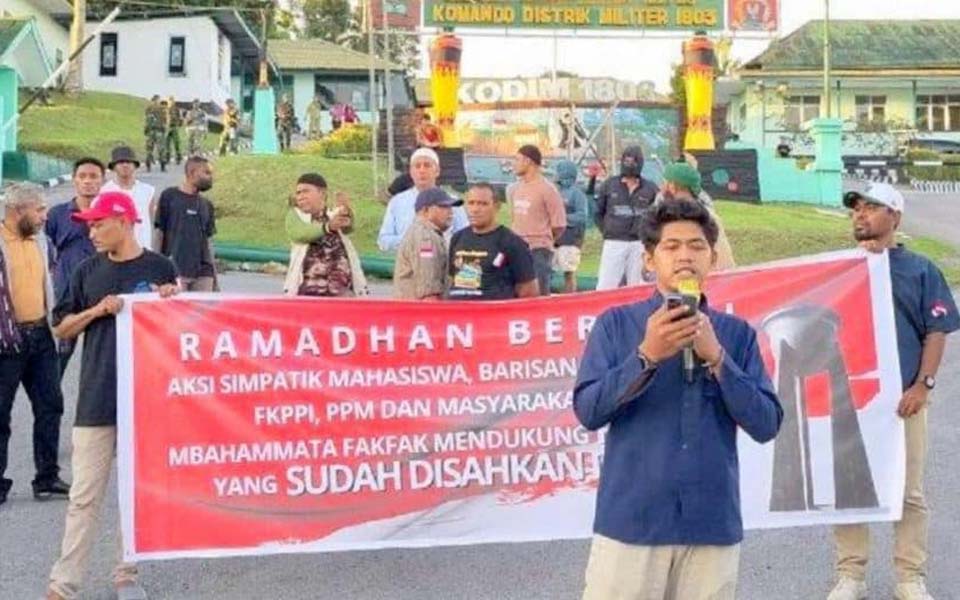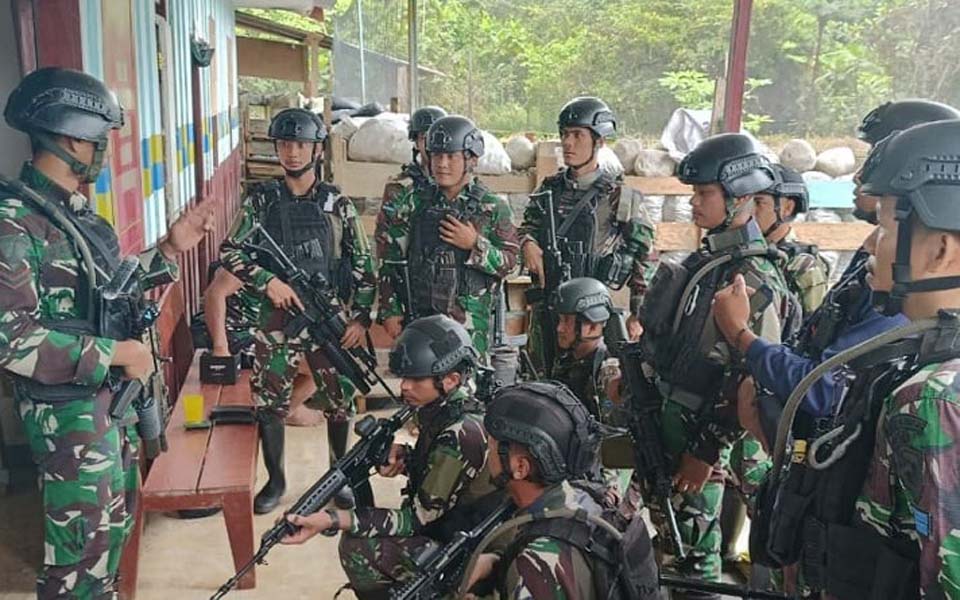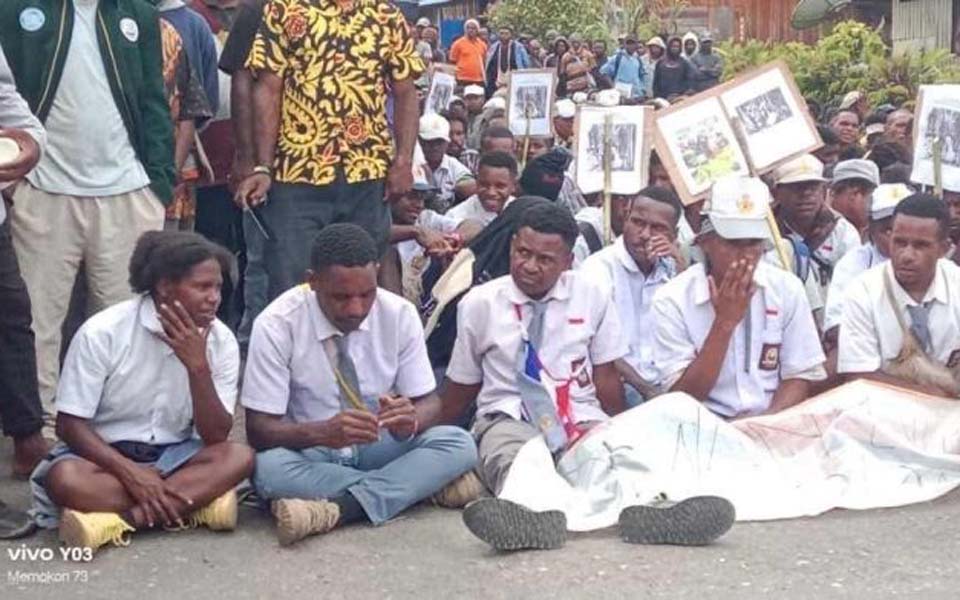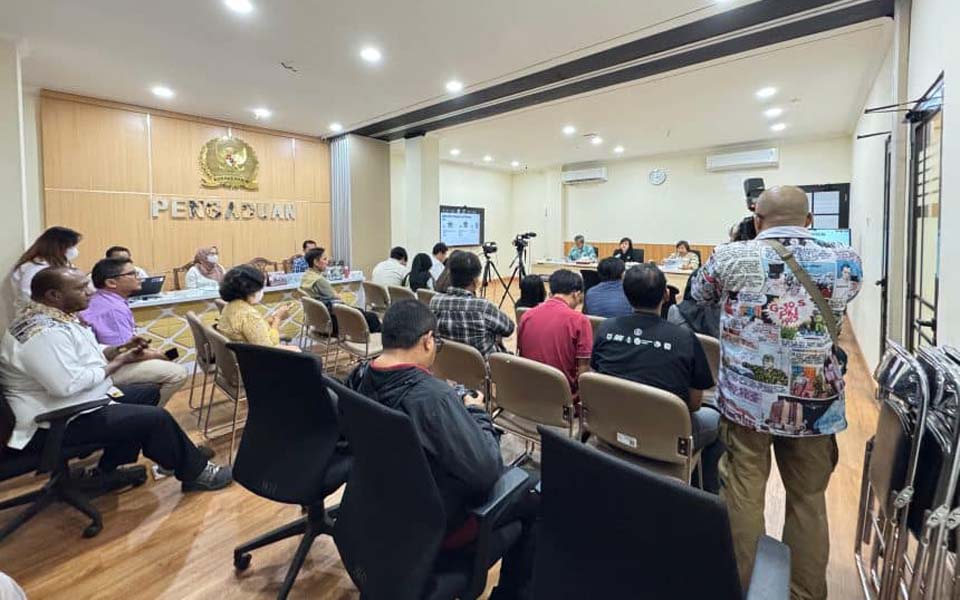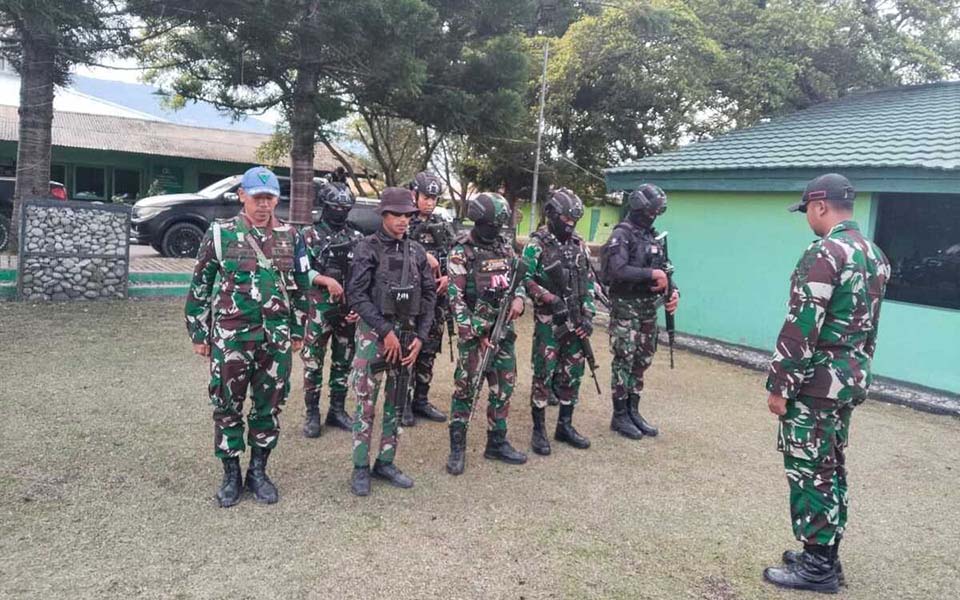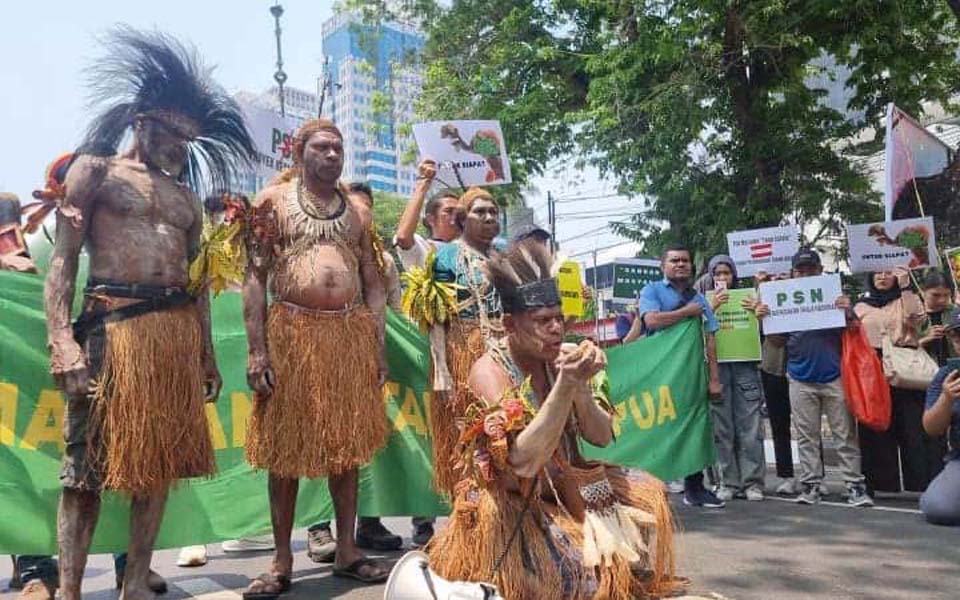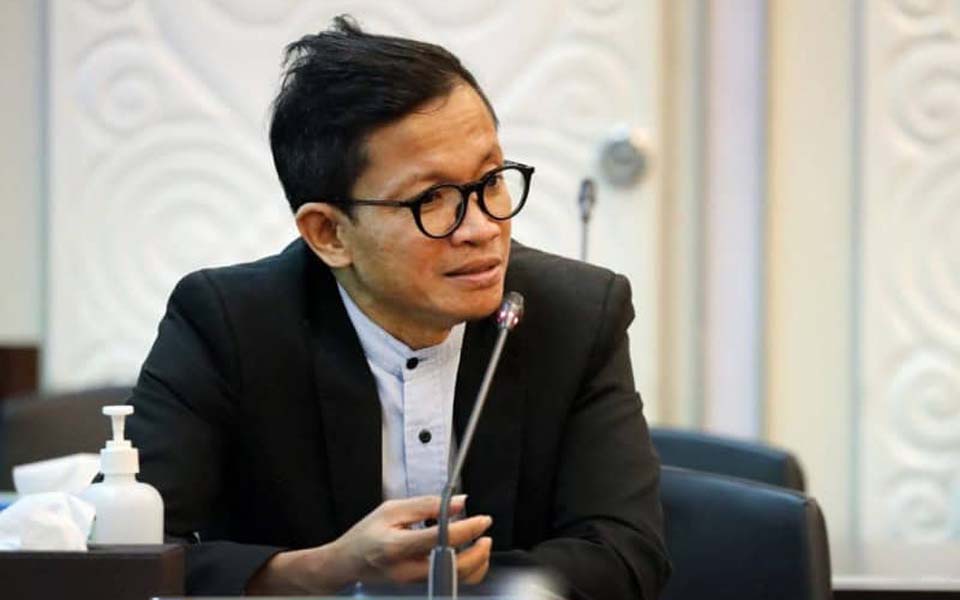Jakarta – Opposition by Tambrauw regency residents in West Papua province against the establishment of the Tambrauw 1810 District Military Command (Kodim) has attracted support from a number of different parties.
The lawyer representing indigenous Papuan land owners (hak ulayat) from the Abun Tribe Customary Foundation (Lamasa), Yohanis Mambrasar, claims that as many as 38 civil society organisations and three human rights groups have declared their support for the Tambrauw community.
The construction of the Tambrauw 1810 Kodim, which was officially opened on Monday December 14 last year, is being opposed by local communities.
Mambrasar said that the communities opposing the new Kodim, who are grouped under the Tambrauw Peace Loving Intellectual Youth Forum (FIMTCD), say that constructing a new Kodim is not in accordance with the community's needs.
"[They are] urging President Jokowi [Joko Widodo], the speaker of the DPR [House of Representatives], the West Papua governor, the speaker of the West Papua DPR, the Tambrauw regent and the speaker of the Tambrauw DPR to coordinate with the TNI [Indonesian military] to cancel the construction of the Tambrauw Kodim", said Mambrasar in a press release received by CNN Indonesia on Sunday January 3.
Not only that, Mambrasar said that leaders of the TNI, particularly the TNI commander, the commander of the West Papua Kasuari XVIII regional military command (Kodam) and the commander of the 181 PVT district military command (Koramil) are also being urged to cancel the new Kodim.
Mambrasar said that dozens of civil society organisations which are active in campaigning for human rights have expressed their support for the Tambrauw community's struggle.
"[These groups] have joined in supporting Tambrauw residents in conveying their views opposing the formation of the Kodim", he said.
Instead of building a new Kodim, Mambrasar suggested that the Tambrauw regional government focus more on working in the interests of civil society in the area. Moreover, what local communities really need is the improvement and development of public facilities, not the construction of a new Kodim.
"[We're] urging the Tambrauw government to focus more energy on developing welfare, education, healthcare, the people's (micro) economy, road access, bridges, electricity and communication networks", he reiterated.
Right from the start after news of the establishment of the Tambrauw Kodim surfaced; communities in the area have expressed their objections and protests. Mambrasar said that they have even asked the government to hold a dialogue with local communities.
The communities, according the Mambrasar, have asked the government to facilitate holding a customary meeting to make a joint decision on the construction of the Kodim.
"But up until now the Tambrauw regency government has never held a dialogue with the communities and has also never reached a mutual agreement between all of the Tambrauw customary communities about the construction of the Kodim", said Mambrasar.
Moreover, he said, the opposition expressed by residents is not without good reason. The construction of the Kodim, according to Mambrasar, has the potential to reopen old wounds and the trauma of past military operations.
"The communities are still traumatised by military operations in the 1960s and 1970s which were accompanied with violence", Mambrasar explained.
In addition to this, the construction of a new Kodim is not an immediate priority bearing in mind that local people are of the view that their region is peaceful and safe and there are no [security] disturbances whatsoever.
"In fact the presence of and an increase in the number of TNI security personnel in Tambrauw over the last few years has resulted in an increase in violence and civilian casualties", he reiterated.
"Local people's objections must be respected by all parties, the government and the TNI", concluded Mambrasar.
Meanwhile, the organisations supporting the Tambrauw communities include, among others, the Commission for Missing Persons and Victims of Violence (Kontras), Asia Justice and Rights (AJAR), Indonesian Human Rights Watch (Imparsial), the People's Earth Heritage Foundation (Yayasan Pusaka Bentala Rakyat), the Papua Human Rights Advocates Association (PAHAM), the Palu Independent Land Foundation (YTM), the Institute for Human Rights Studies and Advocacy (ELSAM), the Indonesian Legal Aid Foundation (YLBHI) and the Papua Indonesian Forum for the Environment (WALHI Papua). (tst/nma)
[Translated by James Balowski. The original title of the article was "38 Organisasi Dukung Warga Adat Papua Tolak Kodim Tambrauw".]






